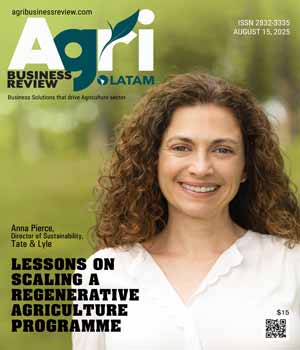The bamboo industry is one of the most exciting frontiers in sustainable business. With its rapid growth, versatility, and eco-friendly appeal, it attracts entrepreneurs eager to make an impact. But good intentions aren’t enough. With over 1,800 species of bamboo—each suited to specific uses—success depends on pairing the right plant with the right product. Too often, people leap in driven by passion but lacking two essentials: a solid grasp of business and a working knowledge of bamboo itself. Without both, the risk of failure skyrockets—and what started as a green dream can quickly become a costly lesson.
Wubu was created to address this exact challenge. Its mission is to guide and empower bamboo ventures with the expertise needed to succeed. Covering the entire bamboo value chain—from land selection to export—it specializes in helping clients establish and optimize bamboo plantations and processing units to create sustainable, market-ready products. By offering hands-on guidance on planting techniques, crop care, and plantation management, Wubu ensures high yields in minimal time.
Every recommendation—species selection, field layout, maintenance routines—is tailored to the client’s specific environment, resources, and goals. Plantation size is matched to product type, and processing systems are structured to ensure economic viability from the start.
 Wubu also helps clients pinpoint the exact end use of their bamboo—whether in construction, textiles, energy, or other applications—and then crafts a cultivation and processing strategy around that. For those still weighing their options, the company offers market insights and product guidance to identify the most promising paths forward.
Wubu also helps clients pinpoint the exact end use of their bamboo—whether in construction, textiles, energy, or other applications—and then crafts a cultivation and processing strategy around that. For those still weighing their options, the company offers market insights and product guidance to identify the most promising paths forward.
“At Wubu, bamboo isn’t just a crop—it’s the backbone of a transformative business model. Our team brings deep expertise in cultivating bamboo and unlocking its full economic potential. From sustainable farming to producing premium, export-ready products, we’ve built an end-to-end system that turns bamboo into global opportunity,” says Juan Pablo Martínez M., CEO.
Spanning Latin America—from Mexico and Colombia to Argentina and El Salvador—Wubu advises and develops bamboo projects with a broader vision to restore ecosystems, empower rural communities, and drive long-term sustainability. Its innovative and holistic approach begins with thorough analysis—studying the land, assessing the climate, and identifying bamboo species that will both thrive and meet market demand. Leveraging a key partnership with India’s leading bamboo machinery manufacturer, the company designs and supplies custom processing facilities tailored to each client’s bamboo species and product goals.
Beyond cultivation and processing, Wubu sources premium bamboo genetics, establishes plantations worldwide, trains local teams, and connects clients to viable markets. For those without buyers, the company provides access to its own international client network.
Wubu also helps clients unlock the environmental value of bamboo. Thanks to its high carbon sequestration potential, bamboo plantations can generate certified carbon credits—especially when developed using native species and community-inclusive methods. The company provides full support for carbon credit certification, including documentation and project registration. These projects contribute to climate action and can help meet up to 11 UN Sustainable Development Goals, making them particularly attractive to global investors focused on sustainability.
At the core of Wubu’s approach is a commitment to agroforestry rather than monoculture. For example, a typical plantation might combine 100 Dendrocalamus asper bamboo plants per hectare with 25 native tree species. This combination promotes biodiversity, restores degraded land, and stabilizes ecosystems. By blending high-yield, non-native bamboo with regionally tailored native flora, the company fosters sustainable, diverse landscapes optimized for each environment.
Just as it invests in land, Wubu invests in people. The company trains rural communities in bamboo craftsmanship—from furniture making to structural elements—using simple tools and small-scale processing techniques. This approach creates localized value chains and channels income directly into rural economies, fostering independence and resilience.
But Wubu doesn’t stop there. While many companies focus on just one part of the bamboo process—whether it’s growing, making, or selling—Wubu takes care of it all. By managing every step, from planting to product delivery, it ensures that the entire process works together seamlessly. This full-circle support makes Wubu more than a supplier—it’s a true partner committed to long-term success.
A prime example of the company’s on-the-ground work is a project in the Red Hall region near Novo San Carlos, Guatemala. When the team first engaged with the site, the local staff were harvesting only about 1.5 bamboo poles per person per day, and there were no preservation processes in place. After implementing Wubu’s harvesting protocols and preservation methods, productivity increased significantly—reaching up to eight poles per person per day with a crew of three workers. This marked a six- to eightfold improvement in output, demonstrating the tangible impact of Wubu’s methods.
Today, nearly two decades since its inception, Wubu has firmly established itself as a leader in the bamboo industry. With a third processing facility now underway in Guatemala, the company has built a fully integrated supply chain that bridges the gap between underutilized local plantations and a growing international market. By sourcing bamboo from local growers—many of whom had no clear market for decades—it has created a model that adds value at the origin while meeting increasing demand in the U.S. and Europe.
As new producers seek to join the network, Wubu’s success underscores the commercial viability and scalability of bamboo as a sustainable resource in the global market.
Wubu was created to address this exact challenge. Its mission is to guide and empower bamboo ventures with the expertise needed to succeed. Covering the entire bamboo value chain—from land selection to export—it specializes in helping clients establish and optimize bamboo plantations and processing units to create sustainable, market-ready products. By offering hands-on guidance on planting techniques, crop care, and plantation management, Wubu ensures high yields in minimal time.
Every recommendation—species selection, field layout, maintenance routines—is tailored to the client’s specific environment, resources, and goals. Plantation size is matched to product type, and processing systems are structured to ensure economic viability from the start.
 Wubu also helps clients pinpoint the exact end use of their bamboo—whether in construction, textiles, energy, or other applications—and then crafts a cultivation and processing strategy around that. For those still weighing their options, the company offers market insights and product guidance to identify the most promising paths forward.
Wubu also helps clients pinpoint the exact end use of their bamboo—whether in construction, textiles, energy, or other applications—and then crafts a cultivation and processing strategy around that. For those still weighing their options, the company offers market insights and product guidance to identify the most promising paths forward.“At Wubu, bamboo isn’t just a crop—it’s the backbone of a transformative business model. Our team brings deep expertise in cultivating bamboo and unlocking its full economic potential. From sustainable farming to producing premium, export-ready products, we’ve built an end-to-end system that turns bamboo into global opportunity,” says Juan Pablo Martínez M., CEO.
Spanning Latin America—from Mexico and Colombia to Argentina and El Salvador—Wubu advises and develops bamboo projects with a broader vision to restore ecosystems, empower rural communities, and drive long-term sustainability. Its innovative and holistic approach begins with thorough analysis—studying the land, assessing the climate, and identifying bamboo species that will both thrive and meet market demand. Leveraging a key partnership with India’s leading bamboo machinery manufacturer, the company designs and supplies custom processing facilities tailored to each client’s bamboo species and product goals.
Beyond cultivation and processing, Wubu sources premium bamboo genetics, establishes plantations worldwide, trains local teams, and connects clients to viable markets. For those without buyers, the company provides access to its own international client network.
-
At Wubu, bamboo isn’t just a crop—it’s the backbone of a transformative business model. Our team brings deep expertise in cultivating bamboo and unlocking its full economic potential. From sustainable farming to producing premium, export-ready products, we’ve built an end-to-end system that turns bamboo into global opportunity
Wubu also helps clients unlock the environmental value of bamboo. Thanks to its high carbon sequestration potential, bamboo plantations can generate certified carbon credits—especially when developed using native species and community-inclusive methods. The company provides full support for carbon credit certification, including documentation and project registration. These projects contribute to climate action and can help meet up to 11 UN Sustainable Development Goals, making them particularly attractive to global investors focused on sustainability.
At the core of Wubu’s approach is a commitment to agroforestry rather than monoculture. For example, a typical plantation might combine 100 Dendrocalamus asper bamboo plants per hectare with 25 native tree species. This combination promotes biodiversity, restores degraded land, and stabilizes ecosystems. By blending high-yield, non-native bamboo with regionally tailored native flora, the company fosters sustainable, diverse landscapes optimized for each environment.
Just as it invests in land, Wubu invests in people. The company trains rural communities in bamboo craftsmanship—from furniture making to structural elements—using simple tools and small-scale processing techniques. This approach creates localized value chains and channels income directly into rural economies, fostering independence and resilience.
But Wubu doesn’t stop there. While many companies focus on just one part of the bamboo process—whether it’s growing, making, or selling—Wubu takes care of it all. By managing every step, from planting to product delivery, it ensures that the entire process works together seamlessly. This full-circle support makes Wubu more than a supplier—it’s a true partner committed to long-term success.
A prime example of the company’s on-the-ground work is a project in the Red Hall region near Novo San Carlos, Guatemala. When the team first engaged with the site, the local staff were harvesting only about 1.5 bamboo poles per person per day, and there were no preservation processes in place. After implementing Wubu’s harvesting protocols and preservation methods, productivity increased significantly—reaching up to eight poles per person per day with a crew of three workers. This marked a six- to eightfold improvement in output, demonstrating the tangible impact of Wubu’s methods.
Today, nearly two decades since its inception, Wubu has firmly established itself as a leader in the bamboo industry. With a third processing facility now underway in Guatemala, the company has built a fully integrated supply chain that bridges the gap between underutilized local plantations and a growing international market. By sourcing bamboo from local growers—many of whom had no clear market for decades—it has created a model that adds value at the origin while meeting increasing demand in the U.S. and Europe.
As new producers seek to join the network, Wubu’s success underscores the commercial viability and scalability of bamboo as a sustainable resource in the global market.
Thank you for Subscribing to Agri Business Review Weekly Brief



